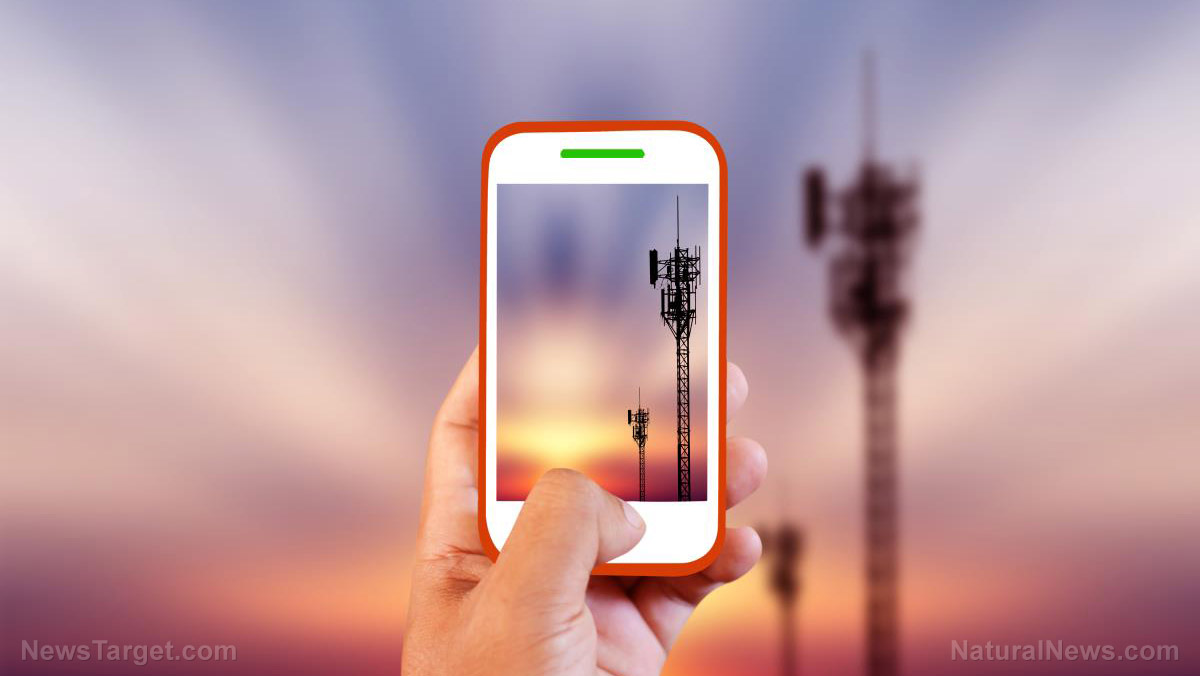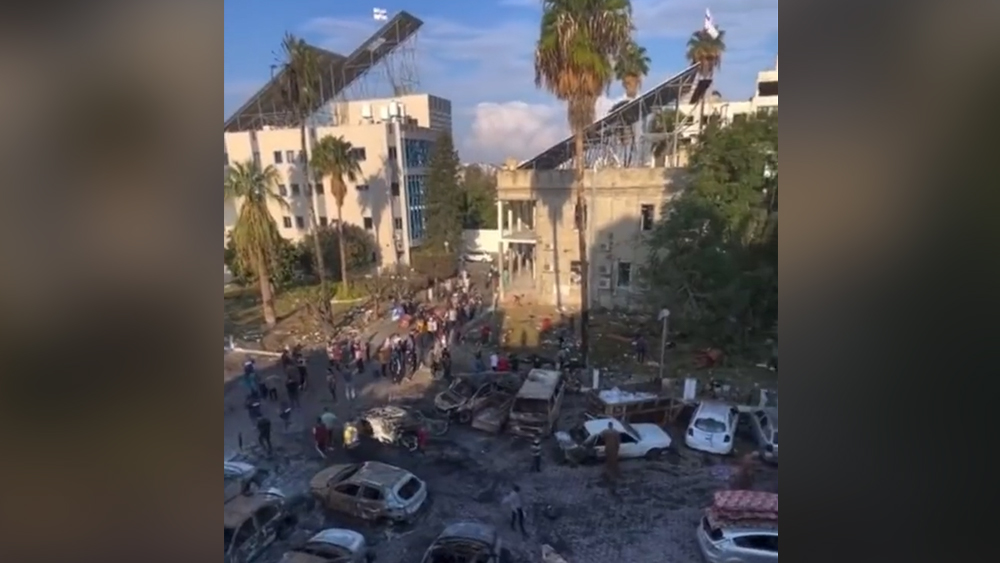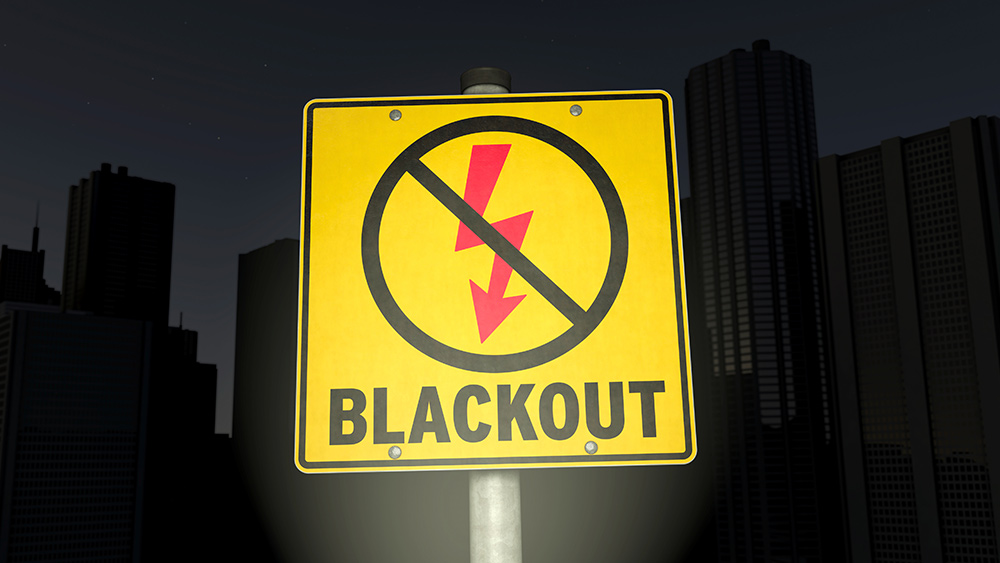Spain’s telecom outage cripples emergency services weeks after nationwide blackout
05/20/2025 / By Cassie B.

- Spain’s nationwide telecom outage left millions without emergency services, internet, or phone access, exposing systemic vulnerabilities in critical infrastructure.
- The collapse, caused by Telefonica’s failed network upgrade, disrupted emergency hotlines, forcing authorities to rely on makeshift solutions.
- This follows April’s massive power blackout, deepening public distrust in the government’s ability to safeguard essential services.
- Emergency systems failed catastrophically, with regions resorting to social media for alternate contacts, which is useless for those without internet access.
- Spain’s crises highlight the dangers of centralized control, urging a shift toward decentralized, resilient infrastructure.
In yet another catastrophic failure of Spain’s critical infrastructure, a nationwide telecommunications outage on Tuesday left millions without access to emergency services, landlines, or internet connectivity just weeks after a massive power blackout paralyzed the Iberian Peninsula.
The latest collapse, caused by Telefonica’s botched network upgrade, raises urgent questions about the fragility of modern systems and the growing threat of centralized control over essential services.
The outage, which began in the early hours of May 20, disrupted the 112 emergency hotlines in Madrid, Catalonia, Valencia, Andalusia, and other regions, forcing local authorities to scramble with makeshift solutions. Telefonica, Spain’s telecom monopoly, admitted the disruption stemmed from “network upgrade work” but downplayed the severity, claiming services were “fully restored” by midday.
Yet the damage was already done: Citizens were left vulnerable and unable to call for help, while the government — still reeling from April’s 18-hour power grid failure — proved powerless to prevent another crisis.
A pattern of systemic collapse
This incident follows the April 28 blackout that plunged Spain and Portugal into chaos, crippling transportation, hospitals, and businesses. While Energy Minister Sara Aagesen insisted the power failure was not a cyberattack, the government’s inability to safeguard infrastructure has fueled public distrust. Now, with Telefonica’s outage compounding the crisis, Spaniards are confronting an unsettling reality: Their reliance on centralized, corporate-controlled systems is a ticking time bomb.
“We’ve been in contact with Telefonica from the very beginning,” said Digital Transformation Minister Óscar López, echoing the same hollow reassurances offered during the power grid disaster. But as Natural News has long warned, monopolistic corporations and bureaucratic regimes cannot be trusted to prioritize public safety over profit or control.
Emergency systems fail when needed most
The outage’s most alarming consequence was the collapse of emergency communications. In Valencia, Aragón, and the Basque Country, officials resorted to publishing alternate phone numbers on social media, which is a futile solution for those without internet access. Catalonia and Extremadura activated contingency plans, but the delays exposed a fatal flaw: modern emergency response hinges on systems vulnerable to single points of failure.
Telefonica’s statement that it “isolated” affected systems rings hollow for citizens who faced life-threatening emergencies. As Downdetector reported, outages spiked across Movistar, O2, and Orange, suggesting broader systemic instability. Meanwhile, Reuters confirmed fixed-line internet services failed in six regions, including Madrid, with 72% of user reports citing total outages.
The illusion of resilience
The Spanish government’s insistence that “all incidents have now been resolved” ignores the deeper issue: Centralized infrastructure invites cascading failures. April’s blackout, which stranded travelers, shuttered hospitals, and triggered food shortages, should have been a wake-up call. Instead, authorities dismissed renewable energy critics and rushed to blame a “voltage anomaly” in a vague explanation that fails to address glaring vulnerabilities.
Telefonica’s dominance over Spain’s landlines (serving 41 million users) mirrors the dangerous consolidation seen in Big Tech, Big Pharma, and energy monopolies. When one entity controls critical systems, sabotage, whether accidental or malicious, becomes catastrophic.
A warning for the world
Spain’s twin crises offer a dire lesson for nations embracing digital dependency. From vaccine passports to CBDCs, global elites are pushing totalitarian systems that erase redundancy and individual autonomy. Community-based networks, offline backups, and independent infrastructure must replace monopolistic models. As Spain’s outages prove, trusting corporations and governments with essential services is a recipe for disaster.
Sources for this article include:
Submit a correction >>
Tagged Under:
big government, blackout, cell service, chaos, Collapse, computing, dangerous, disaster, essential services, Glitch, insanity, internet, national security, outage, panic, SHTF, Spain, telecom
This article may contain statements that reflect the opinion of the author
RECENT NEWS & ARTICLES
COPYRIGHT © 2018 PANIC.NEWS
All content posted on this site is protected under Free Speech. Panic.news is not responsible for content written by contributing authors. The information on this site is provided for educational and entertainment purposes only. It is not intended as a substitute for professional advice of any kind. Panic.news assumes no responsibility for the use or misuse of this material. All trademarks, registered trademarks and service marks mentioned on this site are the property of their respective owners.




















